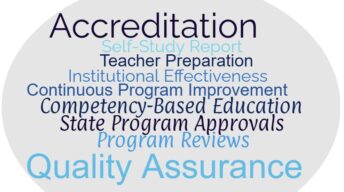This is the fourth installment in a series of blog posts on the topic of competency-based education. Previous posts included: There IS a Better Way to Teach; What’s Under the Hood; and The Basics of CBE Curriculum Development.
How we teach is just as important as what we teach. In other words, instructional methods are just as vital to the learning process as the content being taught. Very few students learn by simply reading or absorbing material—if they did, we really wouldn’t need teachers.
Just as with traditional learning models, there are many ways P-12 and higher education faculty can instruct students within the competency-based education (CBE) model. However, the key here is to provide academic support in a way that helps learners attain essential content and ultimately demonstrate what they know and are able to do. Facilitation, as opposed to direct instruction, has been proven to be an effective way of providing this type of academic support primarily because by its very nature the CBE model creates a space for flexibility for instructors as well as for learners. Of course, face-to-face and online learning environments may require use of different facilitation models, but some good options to consider include:
- Flipped classroom
- Simulations
- Project-based activities
- Student-led Socratic questioning
- Group discussions
- Webinars
- Content-or competency-specific treasure hunts
- Many, many others
Regardless of the facilitation model chosen, learning should be constant, and not time-dependent in a competency-based learning environment. In other words, learners should be actively engaged at all times but should not be forced to move in lockstep fashion with all other students. They should have the freedom and flexibility to learn at their own pace and in their own way—which is one reason why CBE is commonly referred to as personalized learning, although the two terms are not completely synonymous.
In the next blog installment, we will dive more deeply into the teacher’s role within a competency-based learning environment.
–rrf
Dr. Roberta Ross-Fisher is a national leader in educator preparation, accreditation, online learning, and academic quality assurance. An accomplished presenter, writer, and educator, she currently supports higher education and P-12 schools in areas such as competency-based education, teacher preparation, distance learning, and accreditation through her company, Global Educational Consulting, LLC.
